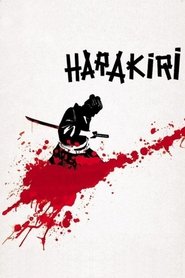Kobayashi discovers irony in the finiteness of the Tokugawa period. The feudal daimyo behave as if their power will last forever, but audiences are able to penetrate their hubris through their own awareness that the Tokugawas will be defeated and that official feudalism will fall with the restoration of the Emperor Meiji, in 1868. This irony is reinforced when Tsugumo tears apart the armored figure, with its white wig, that stands for the clan’s heritage. When it is later resurrected and reseated in its place of honor, Kobayashi exposes the fragility and transience of all authoritarian power.
— Joan Mellen (Criterion)
Synopsis: Down-on-his-luck veteran Tsugumo Hanshirō enters the courtyard of the prosperous House of Iyi. Unemployed, and with no family, he hopes to find a place to commit seppuku—and a worthy second to deliver the coup de grâce in his suicide ritual. The senior counselor for the Iyi clan questions the ronin’s resolve and integrity, suspecting Hanshirō of seeking charity rather than an honorable end. What follows is a pair of interlocking stories which lay bare the difference between honor and respect, and promises to examine the legendary foundations of the Samurai code.

